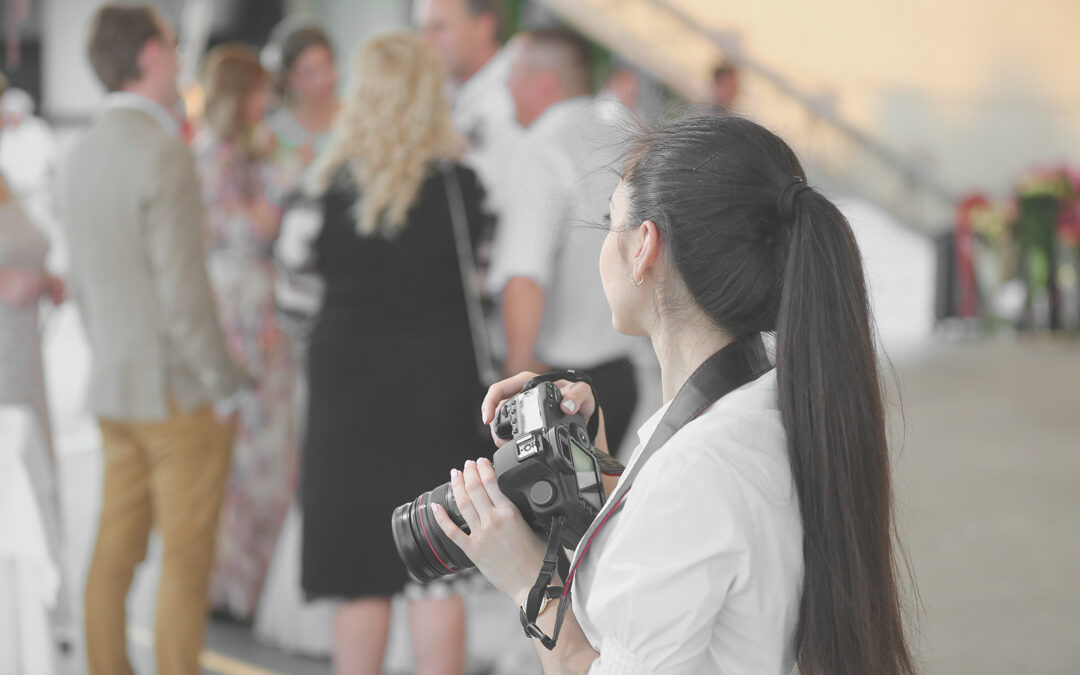
“EG Tips” – How to Get the Most Out of Your Event Photographer
Don’t Cut Corners
Imagine running a huge and complex international conference with over 1,000 attendees only to find out that the photographs captured were not of the standard you anticipated and that frankly you were not happy using any of them. All of that hard work and all of the magical moments were lost forever.
Unfortunately the client had been adamant that an amateur photographer from their team would do the event justice and that the budget simply was not there to justify a professional photographer. However the voluntary photographer’s lack of experience and lack of photographic equipment or knowledge of using it meant that they failed miserably. Of course once an event is over the moment is lost and without great photos to show it is difficult to easily convey the story of the event. A picture really is worth a thousand words.
If budget is tight and doesn’t allow for a photographer throughout the whole event consider contracting a photographer for a half day or even a few hours. Don’t learn it the hard way.
Smartphone’s vs. Photographer
The cameras on most Smartphone’s and tablets are superb quality and the effects that can be achieved with photo editing apps is astounding – but can you really rely on your audience to crowd source all of the key moments of the event you need?
I always recommend to clients that a professional event photographer is worth every single penny. I still appreciate and encourage everyone attending my events (staff included) to take photos using their Smartphone’s and tablets and this is great at capturing specific moments and particularly sharing on social media quickly HOWEVER for me there is a huge gap between these snapshots and the quality of the pictures returned by a professional photographer.
If you are committed to the benefits of having a professional photographer how then do you ensure that you get the most from them?
Check Portfolio and References
Developed a great relationship with a photographer who is your first choice for all events. Of course he/she might be in demand and with event lead times often being short and locations being varied he/she is not always able to accommodate. In these cases explore other options. It is vital to look at the portfolio and testimonials or references for any photographer you are considering working with. Specifically look at examples of other event work and similar projects they have undertaken and most importantly ensure that you like their style and creative flair.
Ask for a Quotation‘
Give as much information as possible to the photographer when asking them to quote for a project. What times realistically do you need them on site, what are you looking for them to cover (remember they can only be in one place at a time unless you need a team of photographers!), how many formal shots are you anticipating, how will you use the photographs afterwards, etc.
Image Copyright/Usage
It is important to be clear with the photographer how you wish to use the photographs afterwards. Will they be needed for press releases, uploaded to your website and social media, used for promotion of the event in future years, etc?
Check if the photographer needs to be credited in a specific way? What are the stipulations for how the photographs can or cannot be used?
Note that it is usual for the photographer to continue to own the rights to the photographs but just give you permission to use the shots in agreed ways.
Venue Knowledge
Has the photographer worked at the venue before? If not ensure they arrive in plenty of time to find their way around before they need to start snapping. Do you have room details listed on the program? Is there a plan of the layout and key areas you could share with them? The photographer will probably be keen to explore the venue and find some well-lit and interesting spaces to use as a backdrop for pictures throughout the event.
Brief in Advance
The morning of the event is always hectic with lots of demands for your attention. Having a written and/or verbal briefing with the photographer in advance of the day always saves precious time and ensures the photographer can get off to a flying start.
Some of the key items to cover in a brief may include:
What Style of Photography are you Looking For?
Do you need any staged formal shots, shots of speakers and performers in action, reportage, artistic shots of the food, venue and branding, pictures of people networking and engaging, pictures of the staff in action, the registration desk, etc?
What Style of Photography are you Looking For?
Do you need any staged formal shots, shots of speakers and performers in action, reportage, artistic shots of the food, venue and branding, pictures of people networking and engaging, pictures of the staff in action, the registration desk, etc?
Are There Any Key Timing to Note?
Have you requested that all keynote speakers meet at 8:30am in the main room for a group photography? Are you giving out a secret award at the end of the day and need the photographer to be poised ready to capture the moment? If so, don’t forget to convey this information to the photographer!
Importance
If there are multiple rooms in session at the same time do you expect the photographer to visit all rooms to capture a couple of quick shots from each? Or which rooms/speakers/sessions are the most vital? Would you prefer more time to be dedicated there?
Extra Requests
If you need a headshot for a new member of staff or a specific picture for your website now is the time to request it!
It’s All in the Detail
Any extra details you can share about the rooms and the venue can be really appreciated by the photographer who can ensure they are well prepared and bring along the right lenses and other equipment. For example, is natural light available or will the blackout blinds be drawn? How will the stage and speaker be lit? Is the lighting static or rotating or flashing? Is there a large projection screen behind? Will the speaker have a lapel microphone and be able to roam the stage or will they be static at the lectern? Are there any special effects?
How Soon Do You Need the Pictures after the Event?
Do you need any specific pictures to be prepared urgently? For example, you may have a press release that needs to be issued the morning after the event and need to have a few select shots ready to send with the release.
Momentum after an event is really important so how soon will you receive the rest of the edited shots? I’m keen to have all photographs within one week in most cases but you will need to agree this with your photographer as editing post event can take time.
Be Transparent
Don’t forget to let your speakers know that photographs will be taken at the event so they are not surprised to see the camera angled at them as they are presenting in full flow.
Also notify attendees and let them know that photographs will be taken and what the photographs will be used for (e.g. future marketing and promotion of the event).
Be Prepared
If someone attending your event is not willing to be photographed how can you handle this? What is the process? How can the photographer be aware at the time of taking the shot or during the editing stage? This is particularly important of young or vulnerable people are attending your event.
A simple but effective way is simply to ask them to be mindful of the photographer and to provide a coloured lanyard, badge or wristband in a bright colour which will show up in editing if they happy to stumble into a shot unnoticed.
In Conclusion
A great event photographer will stealthily and unobtrusively capture the key moments and essence of your event. Like us Event Planners a good Event Photographer will work hard, often walking for miles and barely taking a break to ensure that the event is reported in its full visual glory.
In this information-overload-of-a-world pictures are more treasured and accessible than ever, as the rise of Instagram and the performance of social media posts including pictures proves. Pictures truly are worth a thousand words and justifying the spend from your event budget on an Event Photographer is truly worth every penny.
(Social Coup LLC)



Recent Comments